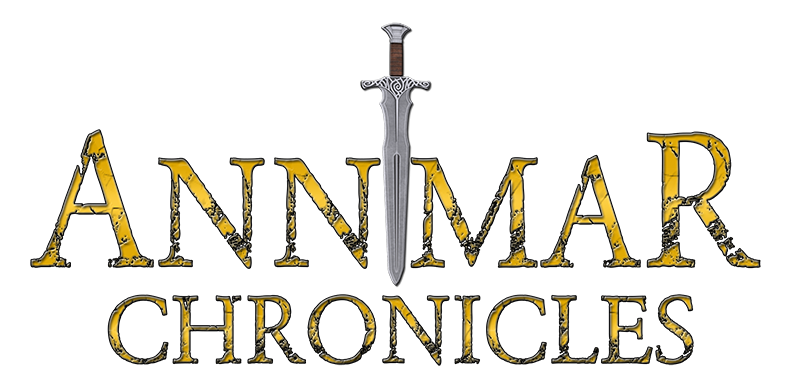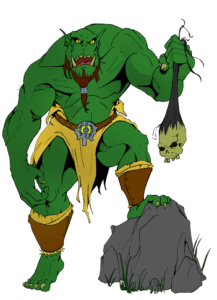
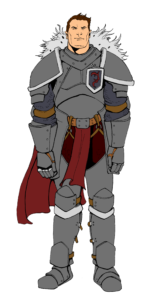
HUMANS
Humans are the most adaptable and flexible of the common races. They are diverse in their morals, customs and habits. Hardy or fine, light-skinned or dark, showy or austere, devout or impious, humans run the gamut.Human adventurers are the most audacious, daring and ambitious members of an audacious, daring, and ambitious race. A human can earn glory in the eyes of his fellows by amassing power, wealth, and fame. Humans, more than other people, champion causes rather than territories, factions or groups. There are more humans that inhabit Annmar than any other species. But they come from different places and have a variety of customs and traditions including religions. They can use magic, both good and dark magic. Humans are thought to be a direct descendant of the god, Dresda — the god of destiny.
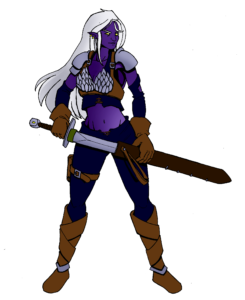
KHRONNE
Most Khronnes choose a life of adventure out of necessity, given the dangers of their homeland. Still, they greatly desire personal power, and many Khronnes take up the mantle of adventurer seeking to satisfy their ambitions. They are also known as dark elves. They worship the evil God Anion. One of the five Gods who are credited with creating the world. He is the God of War. Most gravitate towards the evil side of things. Not all are bad, but they tend to use dark Magic. Khronnes are thought to be a direct descendant of the god, Anion — the god of war and destruction.
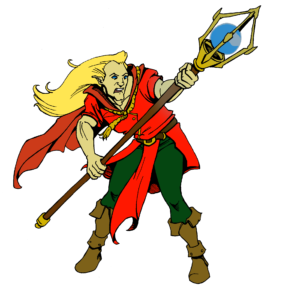
ELVES
Elves are well known for their poetry, dance, song, lore, and magical arts. Elves favor things of natural and simple beauty. When danger threatens their woodland homes, however, elves reveal a more martial side, demonstrating their skill with sword, bow, and battle strategy. Elves mingle freely in human lands, always welcome yet never at home there. Life among humans moves at a pace that elves dislike: regimented from day to day, but changing from decade to decade. Elves among humans, therefore, find careers that allow them to wander freely and set their own pace. Elves also enjoy demonstrating their prowess with the sword and bow, and they enjoy gaining greater magical powers. Adventuring allows them to improve their skill in both. They are more skilled with Magic that any of the other races in Annmar. Elves are thought to be a direct descendant of the god, Cimis — the god of wisdom.
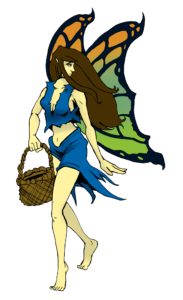
Faerûn
An enchanted race born of raw Fae magic. Fae are the diminutive folk of the Emberwild. These childlike sprites have a penchant for mischievous fun, and there is no game a fairy will not play, no sport it will not attempt, and no revelry it will avoid or decline. Fae are nature’s immature answer to elves, but also bold and resilient, especially in a time of war. They also possess magical abilities. Once thought of as only legend, they will be seen again in Annmar during the first age when magic comes back into the world. Fae can be as small as four inches and as big as a regular size human. Fae are thought to be a direct descendant of the god, Gennir — the god of magic.
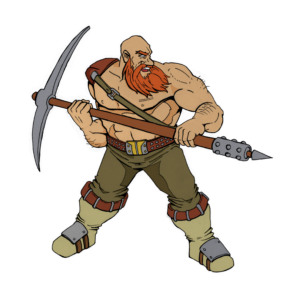
DWARVES
Dwarves are known for their skill in warfare, their ability to withstand physical and magical punishment, their knowledge of the earth’s secrets, their hard work, and their capacity for drinking ale. A dwarf adventurer may be motivated by crusading zeal, a love of excitement, or simple greed. As long as his accomplishments bring honor to his clan, his deeds earn him respect and status. Defeating giants and claiming powerful magic weapons are sure ways for a dwarf to earn the adulation of other dwarves. The dwarves have never had a unified empire and thus have never risen to the prominence of the elves or humans, though their control of mineral wealth has always made them important allies of the greater powers. Their mysterious kingdoms, carved out from the insides of mountains, are renowned for the marvelous treasures that they produce as gifts or for trade. Dwarves are thought to be a direct descendant of the god, Anion — the god of war and destruction.
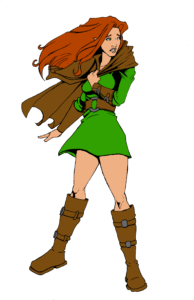
HALF-ELF
Half-elves are born from human and Elven parents and possess aspects of both races. Growing up between human and elven cultures, half-elves develop good social skills out of necessity, using them to smooth-out their way through the world. Their hard-earned social graces can aid them in and out of battle. Much like their human heritage, half-elves possess a flair for versatility, and can specialize in a number of directions. They can be powerful magic users. Elves are thought to be a direct descendant of the god, Cimis — the god of wisdom.
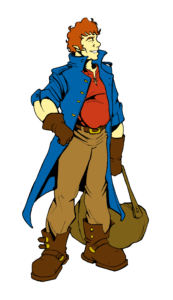
HALFLING
Halflings are clever, capable opportunists. Depending on the clan, Halflings might be reliable, hard-working citizens, or they might be thieves just waiting for the opportunity to make a big score and disappear in the dead of night.Halflings adventurers are typically looking for a way to use their skills to gain wealth or status. The distinction between a halfling adventurer and a Halfling just out to make a big score can be blurry. While Halfling opportunism can sometimes look like larceny or fraud to others, a halfling adventurer who learns to trust her fellows is worthy of trust in return. The heritage of the nomad also serves more urbanized Halflings well, and Halflings have established themselves as merchants, politicians, barristers, healers, and criminals. The tribal nomads of the plains can sometimes be found in the cities, but often the Halflings of the cities blend in with the rest of the population and display only the occasional reminder of their roots. Halflings are thought to be a direct descendant of the god, Eras — the god of tranquility and love.
ORCS
Orcs are savage humanoids with stooped postures, piggish faces, and prominent teeth that resemble tusks. They gather in tribes that satisfy their bloodlust by slaying any humanoids that stand against them Orcs, like the golems were created by the Great War at the end of the First Age that gave birth to Monsters.
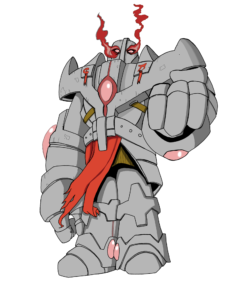
GOLEMS
Golems are constructs built to fight in war and are unpleasant reminders of the brutality of that war. They can be big and small. As they strive to be a part of society, Golems struggle to find ways to relate to the other races that created them. Adventuring is one way that Warforged can fit into the world, at least as well as any adventurer ever does. A fairly large number of Golems choose an adventuring life to escape from the confines of a society that they didn’t create and at the same time engage in some meaningful activity. They came into being during the Great Wars at the end of the first age.
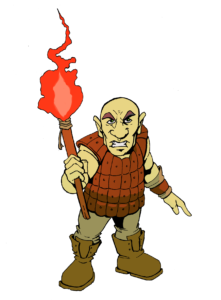
GNOMES
Gnomes, or the Forgotten Folk as they were sometimes known, were small humanoids known for their eccentric sense of humor, inquisitiveness, and engineering prowess. Having had few overt influences on the world’s history, but many small and unseen ones, gnomes were often overlooked by the powers that be, despite their craftiness and affinity for illusion magic. Gnomes were present in nearly every human city and most caravan-stop villages where other cultures and non-human races were at least tolerated. Gnomes were very small compared to most other races and, with an average height ranging between 3′0″–3′6″ (0.9–1.1 meters) and a weight range of 40–45 lbs (18–20 kg), gnomes were generally larger and heavier than Halflings, though forest gnomes, ranging between 2′1″–2′10″ in height (0.6–0.9 meters) and 21–35 lbs in weight (10–16 kg), tended to be smaller than Halflings. However, while Halflings were commonly said to resemble short humans, gnomes were more comparable with elves, with whom they shared pointed ears and high cheekbones, or even dwarves, due to their tendency to grow beards and live underground. Many gnomes had a more feral appearance than either, however, with hair that often sprouted from their heads in odd directions. A small percentage of Gnomes know how to use full magic. They also tend to stay mostly within their own communities. Gnomes are thought to be a direct descendant of the god, Eras — the god of tranquility and love.
